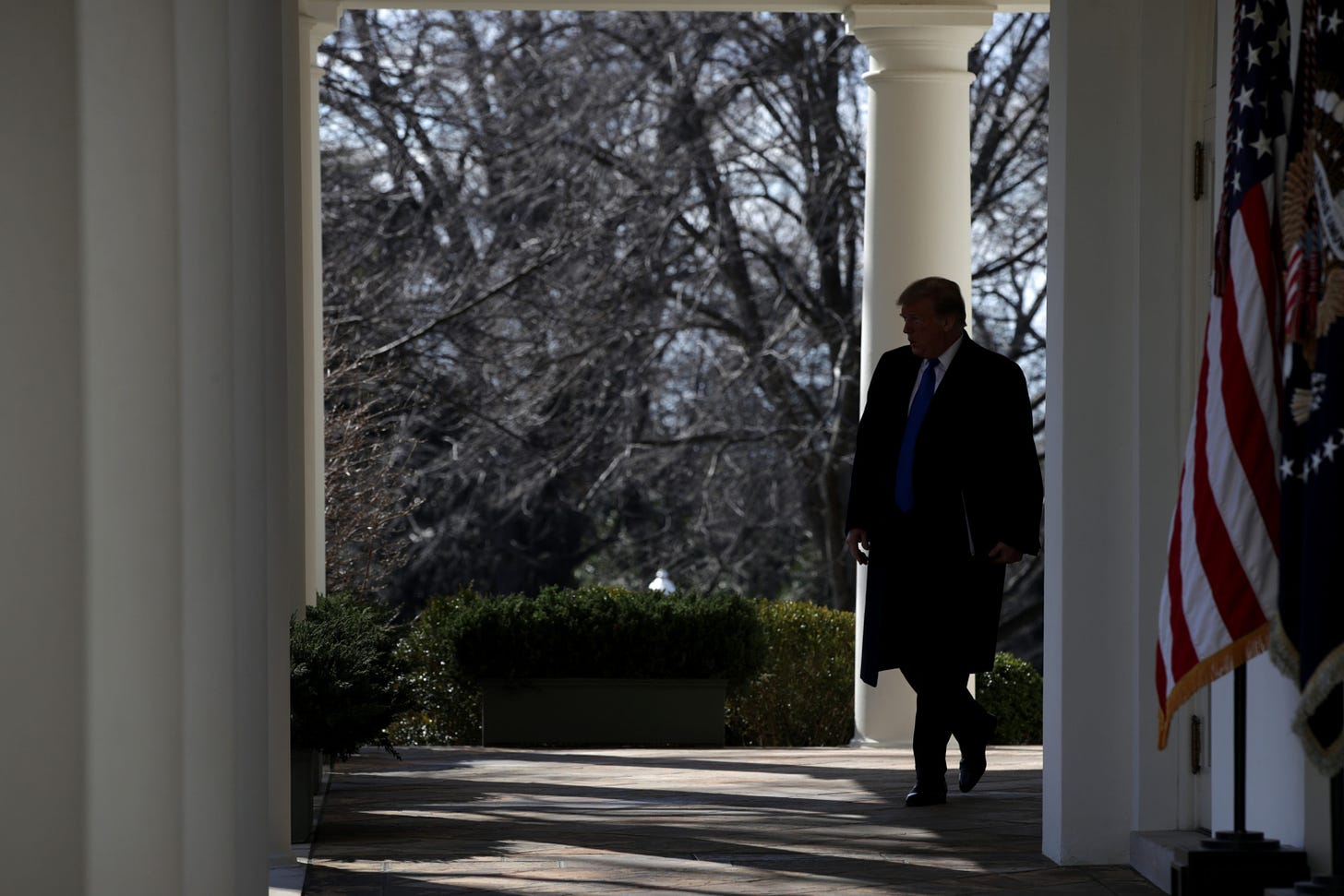No One Hates the Immigration Plan More Than Trump's Base

The immigration strategy President Trump is now pursuing—signing a wall-free spending bill to keep the government open, then trying to build the wall by declaring a national emergency—is remarkable for many reasons, but perhaps most of all for this: The people who are angriest about it might be the very immigration hawks that the whole strategy is supposed to satisfy.
The hawks aren’t angry for the same reasons that constitutionally minded conservatives are—that the emergency declaration is a bewildering expansion of executive power, or that it sets a horrific precedent that future Democratic presidents are guaranteed to abuse. In fact, the bee in their bonnet isn’t related to the national emergency declaration at all, but to the lowly spending bill Trump signed Friday to keep the government lights on. That bill, the hawks complain, contains several provisions that will make constructing new border fencing and deporting illegal aliens next to impossible.
Here’s maybe the king of the immigration hawks, Mark Krikorian of the Center for Immigration Studies, beseeching Trump not to sign the bill in a Thursday column at National Review:
The text of the funding bill was released last night/this morning, and lawmakers are expected to vote on the 1,169 page measure as early as this evening. The bill is disappointing in many respects, but if it had been as advertised earlier, it might have been tolerable.
But my fears that senators Durbin and Leahy would trick the Republican conferees (none of whom knows the first thing about immigration policy) were realized. Standing out among the many distasteful provisions are two poison pills that I hope the Republican committee members either didn’t know about or didn’t understand. Krikorian goes on to describe how the bill sneaks in provisions requiring the Department of Homeland Security to get permission from local elected officials before building barriers in counties along the border—while also opting only to authorize new walls in the Rio Grande Valley, where local governments are overwhelmingly Democratic. Even worse, he says, the bill blocks border security agents from detaining “anyone who has effectively any relationship with an ‘unaccompanied’ minor—either because they’re sponsors, in the same household as sponsors, or even just ‘potential sponsors’ (or in the household of potential sponsors!) of such a child.”
It’s genuinely difficult to put into words just how bananas this all is. The president of the United States is currently setting the concept of constitutional governance on fire, making a mockery of every conservative warning about the imperial presidency, and hanging his allies in Congress out to dry to boot, all in an apparent effort to placate the immigration wing of his base—who all the while are shrieking for him not to do the thing he is nevertheless doing.
How did it come to this? The most reasonable explanation is simply that the White House did not anticipate how strongly its most fervent supporters would oppose the spending bill. Administration officials knew, of course, that the top-line item, the measly $1.375 billion the bill allotted for new barrier construction, was a bitter pill for their voters to swallow. That was the whole reason for the spoonful of sugar of the national emergency. Beyond that, however, Trump seemed not to suspect there was anything to worry about in the bill. And with good reason, according to a Thursday report in the New York Times:
A balky president was concerned that signing the measure could impose restraints on his ability to tap other funds and was urged by his chief of staff, Mick Mulvaney, to tell Republican leaders to instead pass a short-term bill to keep the government open while reopening negotiations, according to a Republican briefed on the situation.
Such a move would have unraveled the delicate bipartisan balance favored by Senator Mitch McConnell, Republican of Kentucky and the majority leader, who wanted to move beyond the wall fight. In a telephone conversation on Thursday, Mr. Trump asked Mr. McConnell whether the spending measure included any hidden provisions or “land mines,” and the senator reassured him it did not, according to a person familiar with the call. But subterfuge or ignorance on McConnell’s part isn’t enough to bail Trump out. After all, the White House has had ample time over the last two days to process the hawks’ arguments and change course accordingly. And yet on Friday, land mines or no land mines, Trump signed the bill. After dragging the nation through months of grinding policy brinksmanship for the express purpose of making the hawks happy, he suddenly sold them out for a song. Poison pills or no poison pills, the spending bill is now the law of the land.



